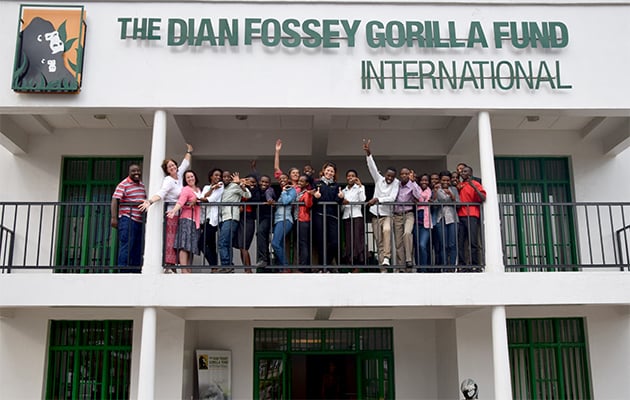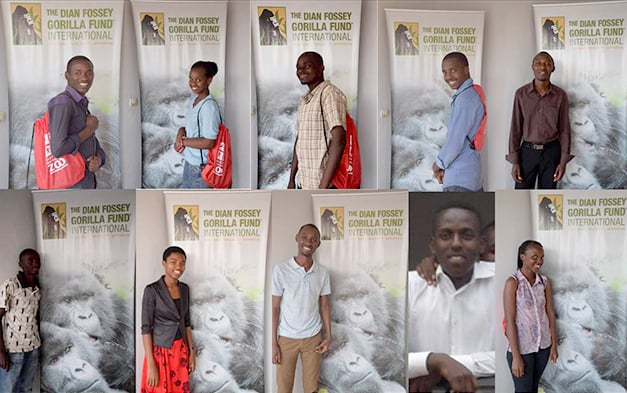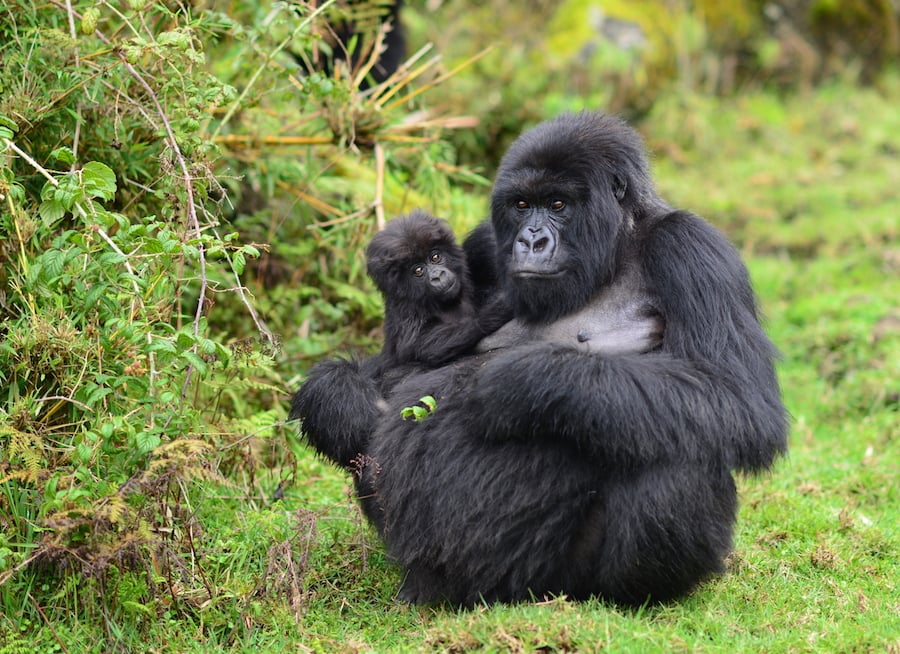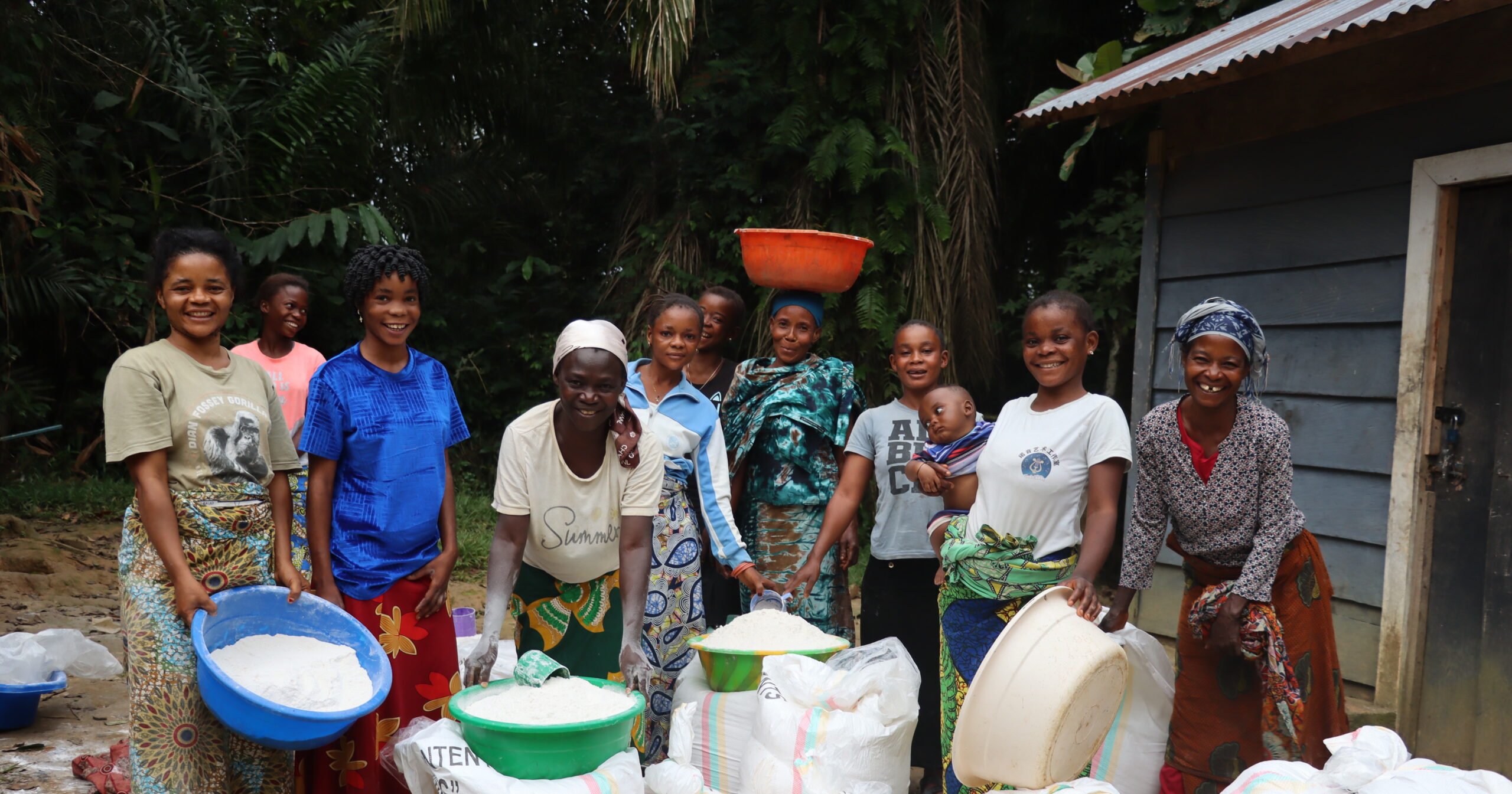July 6, 2016
Young Rwandan scientists in training at Karisoke

Training aspiring young scientists is one of the Dian Fossey Gorilla Fund’s key goals among our community programs in Rwanda, helping to build the next generation of conservationists. Each year, this program reaches more than 300 biology students from the University of Rwanda (UR) and other local institutions.
Students come to the Fossey Fund’s Karisoke Research Center for undergraduate and professional internships to learn about the fauna and flora of the Virunga mountains, to have their first practical experience in field research methods, and for close supervision and training in scientific skills as they pursue final research projects for their bachelors’ degrees.
Summer is the busiest time at Karisoke for these activities. From June to August, the 10 best fourth-year UR biology students join our team to conduct their final research projects, before going back to the university to start writing up their theses.
While at Karisoke, they first refine their research proposals, then also learn how to make presentations. In June, all the students presented their projects to Karisoke staff and conservation partners, to get feedback and be ready to start their research in the field.
“We are extremely proud of these university students,” says Fossey Fund President and CEO/Chief Scientist Dr. Tara Stoinski. “Training the next generation of scientists is one of our core commitments and we are thrilled to be able to continue to offer this opportunity to an increasing number of students. It is extremely rewarding to see the improvement in their scientific skills and increase in confidence while they are here for the summer.”
Dr. Winnie Eckardt, research manager at Karisoke agreed. “The outcome of even a few days of intense training is immense. I was impressed by the quality of the students’ presentation styles and research proposals. And most importantly, the students clearly get excited about their projects and take full ownership with a great amount of confidence.”
After the presentations, the students start their 6-week field data collection period, supervised by Karisoke senior staff.
“It’s an amazing opportunity to work with the professional staff at Karisoke and actually put in practice what I have been studying for years,” says student Deogratias Ryumugabe. “It’s inspiring to see all the activities carried on in the field and at the office and to gain skills by working with the researchers.”
Everyone involved is grateful to Cleveland Metroparks Zoo (CMZ) for the financial support and for their expert staff involved in this program. CMZ has been supporting the Fossey Fund for many years with educational and other efforts. Dr. Kristen Lukas (CMZ’s Director of Conservation and Science) has been directly involved with the Fossey Fund capacity-building program since 2012 and has traveled to Karisoke to provide direct student supervision.
“Working with the Fossey Fund is the realization of a lifelong dream for me and I am so proud to be part of this team of dedicated conservationists,” says Lukas, who recently joined the Fossey Fund’s board of trustees. “It is wonderful to have the support of everyone at CMZ in doing this important work. I can’t even describe how rewarding it is to help mentor the UR students, who are so hard-working, smart, and committed to conserving wildlife.”
This year we also extend our thanks to Dr. Melanie DeVore, a botanist from Georgia College, who came to Rwanda to volunteer with the training of students studying vegetation in the park. Her contribution has made a huge difference in the projects, which benefited from her botanical experience.

Here are this summer’s students and their research topics:
* Deogratias Ryumgabe: An assessment of conservation attitudes in schools participating in Karisoke Research Center programming.
* Alphonse Ngiruwonsanga: Thermoregulatory behavior in mountain gorillas.
* Alphonse Nyandwi: Phytoliths of nettle epidermis and trichomes types from species consumed by gorillas.
* Cecile Kayitanirwa: An evaluation of knowledge and attitudes in visitors before and after visiting Karisoke educational exhibit.
* Marie Fidele Tuyisenge: Applying fecal analysis to determine food plant usage by gorillas and its application for conservation.
* Jean de Dieu Nsanzineza: Social interactions of male and female golden monkeys (Cercopithecus mitis kandti) in Volcanoes National Park
* Anselme Abaliho: Assessment of importance of ridges and draws in plant diversity maintenance in Volcanoes National Park.
* Nadia Niyonizeye: Arboreality in mountain gorillas from Volcanoes National Park.
* James Kagwiza: Altitudinal distribution of Regal Sunbird (Cinnyris regia) and Collared Apalis (Ruwenzori apalis), endemic bird species to Albertine Rift.
*Jean Claude Twahrwa: Tooth wear in golden monkeys and adaptation to the bamboo diet.






